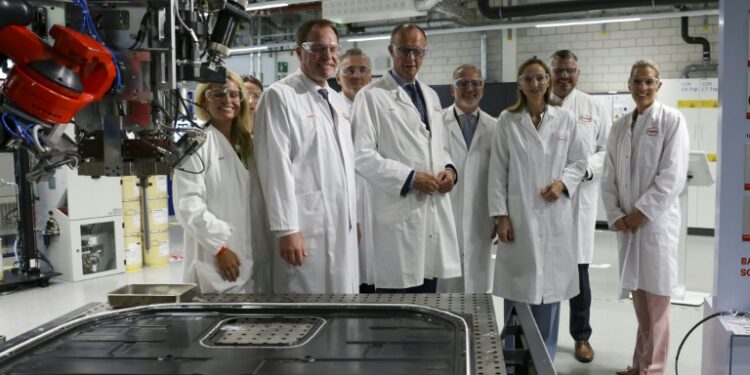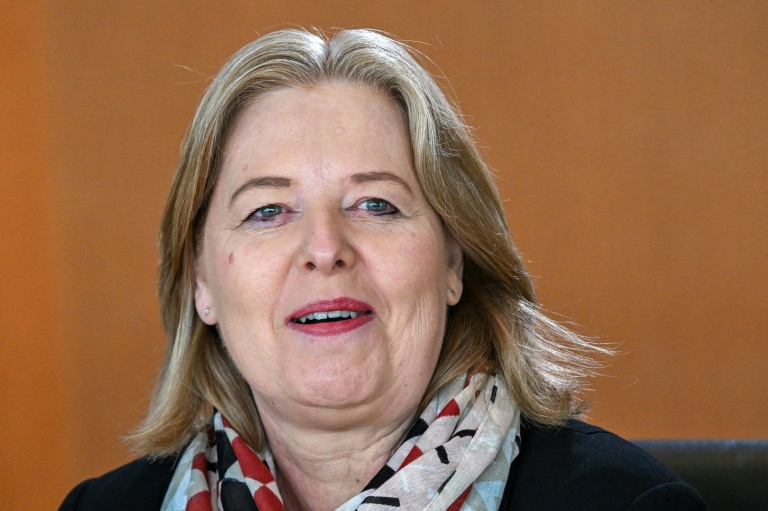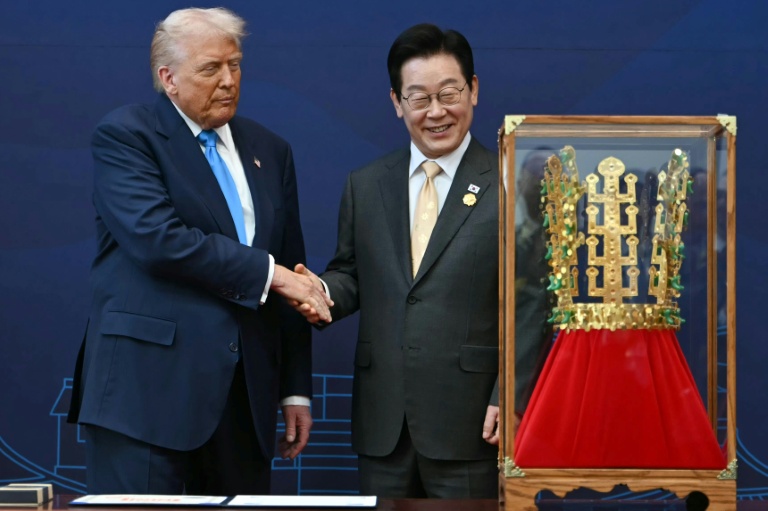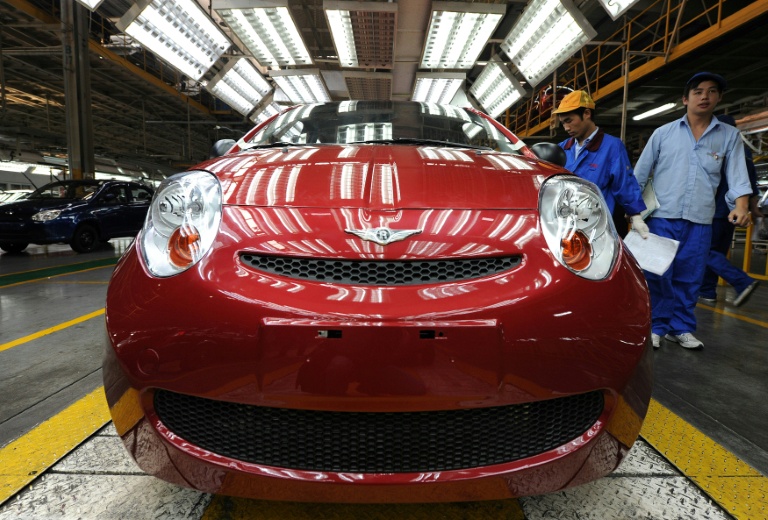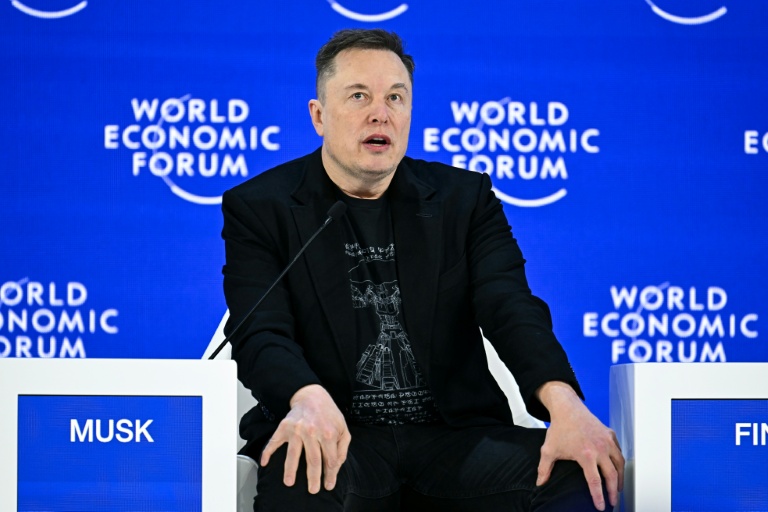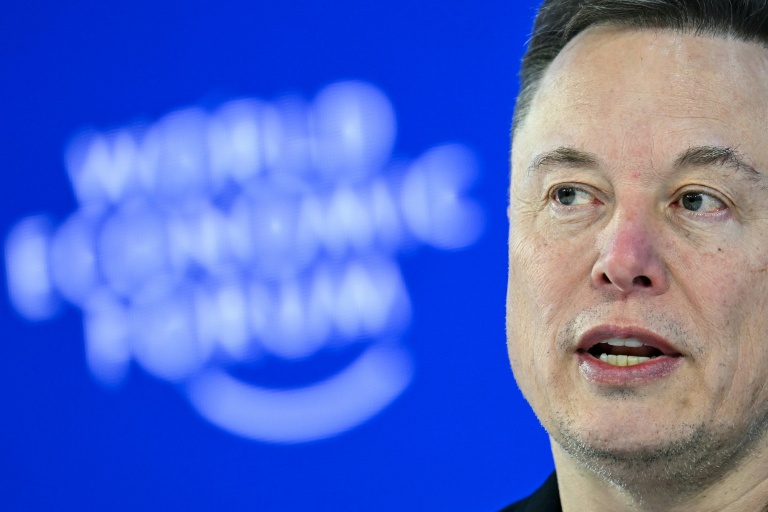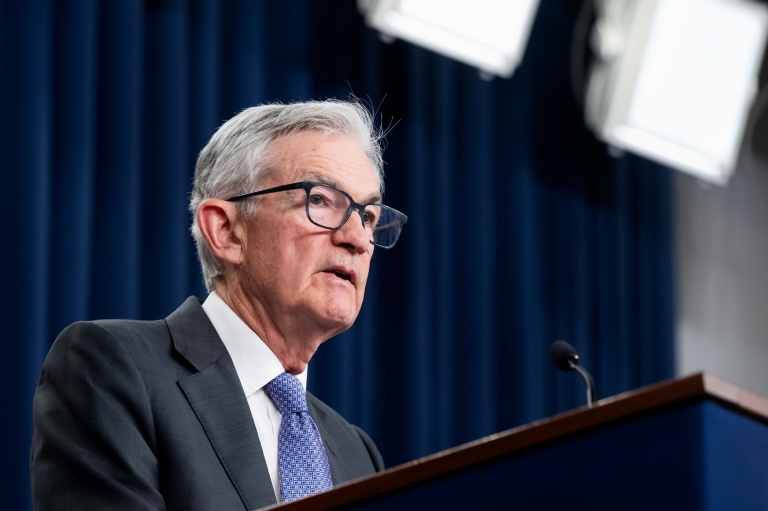Frankfurt (Germany) (AFP) – Germany must move quicker with potentially painful reforms, experts warned Thursday, in the latest sign of unease at Chancellor Friedrich Merz’s efforts to turn the struggling economy around. Merz has vowed to boost Europe’s biggest economy with a debt-fuelled public spending bonanza, focusing on defence and infrastructure.
But Geraldine Dany-Knedlik of the German Institute for Economic Research said such plans by themselves would provide only a short-term boost. “A renewal of the German economy remains elusive and prospects for growth are continuing to deteriorate,” said Dany-Knedlik, as she presented updated growth projections conducted jointly by several institutes. “Structural problems are merely being masked,” she said, warning that high costs, skills shortages and decreasing competitiveness all threaten growth.
Calling on the government to get more people in work as well as cut bureaucracy and the cost of Germany’s welfare state for employers, Dany-Knedlik said a “broad-based” recovery was not yet in sight. The warning piles the pressure on Merz, who last week vowed an “autumn of reforms” and said the country needed “a new consensus” on how its welfare state should look. The Bild newspaper also reported Tuesday that business associations had berated Merz behind closed doors for moving too slowly on reforms.
Speaking alongside Dany-Knedlik, Stefan Kooths of the Kiel Institute for the World Economy said that early signs when it came to cutting employers’ social security costs were not promising. “The situation is not getting better but, at least initially, worse,” he said, comparing the German economy to a “junkie” who had just received a fix in the form of Merz’s promised billions for infrastructure spending. “A junkie handed a full syringe will feel better after the shot but no one would think, certainly not a doctor, ‘Ah now the patient has recovered'”, he said.
Without “clear, growth-boosting reforms”, the effects of Merz’s public spending boost would soon fade, he added. The seven institutes raised their growth forecast for 2025 by 0.1 percent to 0.2 percent compared to their previous projections in April. They kept their forecast for 2026 unchanged at 1.3 percent, driven by higher government spending.
© 2024 AFP

